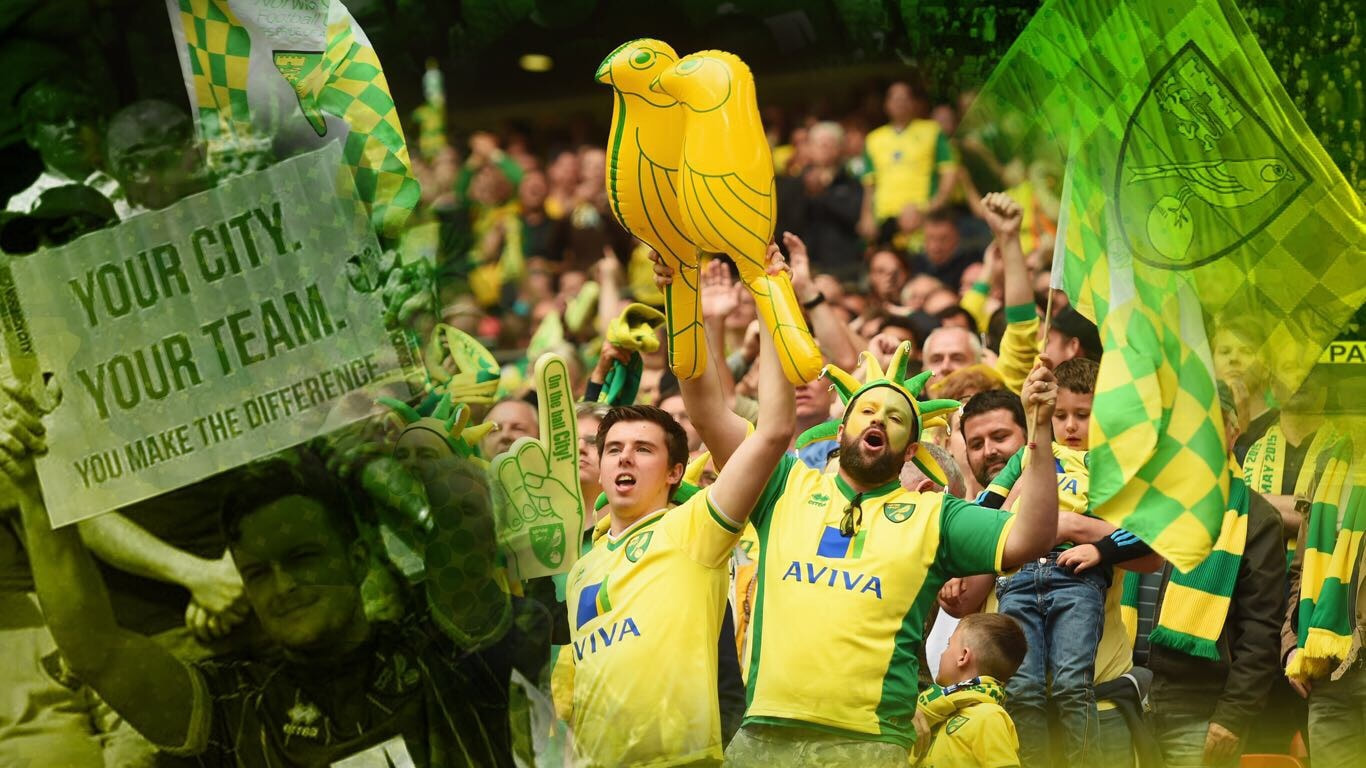Parachutes – Are They A drag?
Parachute payments were meant to prop up our tilt back to the top. Or were they? Andy Lawn takes a different view and tells you all about it.

As Carrow Road angst levels plateau at the forthcoming loss of parachute payments, it struck me that while they sound invaluable in principle, maybe they aren’t the magic ticket back to the Premier League they’re built up to be.
First introduced in 2005, the payments have two aims. Firstly to let relegated clubs manage the tricky transition to the Championship, mainly paying the wage bill in the first season while they either geared up for a swift return or looked to sell players and run contracts down.
The second aim was to ensure the league stayed competitive by encouraging newly promoted sides to feel they could strengthen their squad without risking financial ruin.
Clubs are given a percentage of what they make in their final year in the top-flight. This season that equated to a massive lb47m for Middlesbrough, Hull and Sunderland. Compared to the lb2.3m clubs not receiving parachute payments receive from the EFL, which is topped up by the Premier League in the form of a solidarity (ha) payment.
You would expect then that, if you subscribe to the idea that the more money you have the more successful you are, then boosted by this generous financial windfall those clubs would be leading the fight for promotion. As I write this they are 9th, 20th and 23rd respectively.
Perhaps the effects of relegation mean it is unfair to pick on teams who have just dropped out of the top flight, after all less than 25% of teams do bounce back immediately. Newcastle last season are the exception, not the rule.
How about 2nd time around, do teams that have shrugged off the disappointment of relegation to bounce back 2nd time around?
Again, the answer is not as often as popular myth would have you believe. In fact, teams are even less likely to return in their 2nd season in the Championship, with only 7 having ever done so, and since the Premier League was introduced in 1992, over a third of teams relegated have never returned to the top-flight.
That list of clubs include; Villa, QPR, Wigan, Fulham and last week’s tormentors; Cardiff.
So why is that, given they have this huge financial assistance? Well the first reason is the losing mentality that can engulf a club en route to relegation.
Second, there is the added pressure of, despite the evidence, a massive level of expectation among the fanbase that a glorious return will be instantaneous. The hyperbole around the quality of the top-flight in comparison with the Championship, coupled with this financial doping, endows us all with a false sense of superiority. We were as guilty as anyone of assuming this when we last dropped out of the top-flight.
The reality is somewhat different and as that reality starts to bite discontent sets into the crowd and it becomes a vicious cycle. It is a cycle we’re still in.
The knowledge of relegated clubs receiving these huge parachute payments has an additional effect in that when you embark on a rebuilding job of your playing staff, clubs you are negotiating with know you have the cash, should they jack up their prices.
Clubs know it and potential signings know it – all of which adds an additional layer of difficulty at a time of turmoil.
That effect is why, I think, Webber has been so stark in his public statements on our finances. The less other clubs think we have, the less they are likely to artificially inflate their prices when we go calling. Similarly, when clubs approach us, the harder they may expect us to drive a bargain if we now “need” the money.
The point of all of this is to try and alleviate some of the gloom. Sure, millions of pounds would be nice, but history suggests parachute payments are not the golden ticket they are sold as, but can equally be a burden.
They can stop you crashing face first into the Championship at 100mph, but they can just as easily hold you back when trying to sprint into the lead in the mad dash for promotion.
As Cardiff, who are one season on in their own rebuilding efforts, are showing this season is not the last chance saloon and despite the loss of Premier League millions, we can afford to give Farke time.
Second, to keep AlongComeNorwich advert free and to help us fund additional initiatives aimed at improving the Carrow Road atmosphere, we occasionally produce exclusive t-shirts/merchandise.
This time we’ve produced garments celebrating our rightful place as the Pride of Anglia. As always, we take no profit from these and put all the revenue back into the site and things we can all enjoy.
Napoli Nodge Badge *SALE PRICE*
FORZA NODGE BADGE - *SALE PRICE*
ACN Scarves
Comments
There are no comments on this article yet.
Give A Little Back, It's Time
05/12/17
After another disappointing cup draw for the Canaries, Jon Punt talks ticket prices for Chelsea. Because there's nothing else going on of real concern, is there???
Sheff Wed (h); The Preview
08/12/17
Fan unrest at perceived negative football holding back pre-season promotion expectations and an apathy engulfing the club, Sheffield Wednesday head to Carrow Road on the back of 4 straight draws. Andrew Lawn chatted to North Stand Owl for his thoughts.
